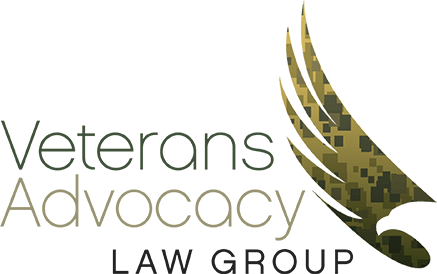Under a Department of Defense (DoD) contract, computer software (CS) and technical data (TD) are examined by the U.S. Government, when delivered, for any restrictive markings. If found, the Government reviews the contract’s assertions list to verify that the CS/TD is listed on it as the contractor cannot deliver any data with restrictive legends unless it is on the list. At its discretion, the Government can issue a pre-challenge request for information if it has reasonable grounds to doubt the current validity of the restrictions. Per the pre-challenge notice, the contractor needs to provide a written explanation for any asserted restrictions claimed by itself or its subcontractor on the rights of the Government or others to use the CS/TD. Typically, this explanation is a statement of facts with supporting documentation.
A pre-challenge sets in motion specific actions to be taken by both the contractor and the Government. For example, suppose the Government finds the contractor's response to a request for information on the asserted rights restrictions to be satisfactory. In that case, it may decide not to issue a formal challenge after all and continue to comply with the restrictive marking placed on the CS/TD by the contractor. In the case of commercial items, there is an assumption they were developed exclusively at private expense, and the contractor's asserted restrictions are considered valid. Therefore, the Government typically does not challenge restrictions on a commercial item unless it has reasonable grounds to question whether it was indeed developed exclusively at private expense. For example, this could happen if the Government has information or records indicating some or all of the development of one or more parts of the item was funded by the Government under one or more prior government contracts.
Here are some common situations and steps the Government's issuance of a pre-challenge request for information typically triggers.
Contractor Fails to Respond On-Time
The Contracting Officer (CO) may opt for a formal challenge as they may determine that adhering to the restrictive marking would hinder the subsequent competitive acquisition of the item related to the TD.
Contractor Provides an Inadequate Response
Before pursuing a formal challenge, the CO may request additional information, giving the contractor another opportunity to provide further information and supporting documentation.
Initiating a Formal Challenge
The CO will send a challenge notice, in writing, to the contractor that details the specific grounds for challenging the asserted restriction(s). Per the notice, the contractor must provide a response that justifies, including supporting evidence, the current validity of the asserted restrictions. Additionally, the notice informs the contractor that a failure to respond could lead to the issuance of the Contracting Officer’s final decision (COFD). The response must be returned to the CO within a specified time.
After a formal challenge is initiated, there are three potential scenarios:
Contractor Fails to Respond
The CO issues a COFD that denies the validity of the restrictions.
Contractor Provides an Inadequate Response
The CO may issue a COFD that denies the validity of the restrictions and informs the contractor of their right to appeal.
For commercial items, the CO must provide evidence proving the item was not developed exclusively at private expense and was at least partially funded by government funds. If the evidence is insufficient, the challenge to the validity of the asserted restrictions will not be sustained.
Contractor Provides an Adequate Response
The COFD issued by the CO upholds the validity of the restrictive marking. It also states the Government will abide by the restrictive marking.
If the COFD denies the validity of the contractor’s restrictions, the Government must still abide by the marking for 90 days after the COFD is issued. If the contractor appeals the decision during these 90 days, it will file an appeal with the Armed Services Board of Contract Appeals for DoD contracts or notify the CO of its intention to file it with the Court of Federal Claims. If, within 90 days, the contractor fails to appeal, file suit, or notify the CO of its intent to file, the Government may ignore or cancel the restrictive markings. By failing to act, it is considered that the contractor agrees with the Government's decision to cancel or ignore the markings.
If the contractor gives notice of its intent to file, it has one year from the issuance of the COFD to file its suit. However, if an appeal or suit is filed under the Contract Disputes clause, the Government agrees to honor the restrictive marking until the Board of Contract Appeals or the Court of Federal Claims reaches a final decision.
If the Court or Board determines the restrictive marking is unfounded and denies the contractor’s appeal, the restrictive marking is removed. Additionally, the contractor will be responsible for the costs incurred by the Government due to the challenge if the restrictive marking is found not to be substantially justified. Conversely, if the contractor is successful in the appeal, the Government will still be required to abide by the markings. Suppose it is determined that the Government's challenge was not made in good faith. In that case, the contractor will be entitled to reimbursement, at the Government’s expense, of its fees and other expenses related to defending the marking from the Government.
During the challenge process or appeal, both parties may engage in settlement discussions at any time. If a settlement is reached, it typically leads to a specially negotiated license (SNL) agreement for the disputed CS/TD rights, a settlement agreement, modification of the contract that triggered the CS/TD dispute to include the SNL and settlement agreement, and dismissal of the challenge or appeal.
If you are confronted with a formal challenge concerning the restricted rights of your CS/TD, do not hesitate to reach out to us at Veterans Advocacy Law Group. Our team of experienced Government Contracting and Intellectual Property lawyers will thoroughly examine the challenge and supporting evidence backing your claims of restricted rights. Then, we will either discuss a settlement with the Government or represent you in your case before the Board of Contract Appeals or the Court of Federal Claims.


